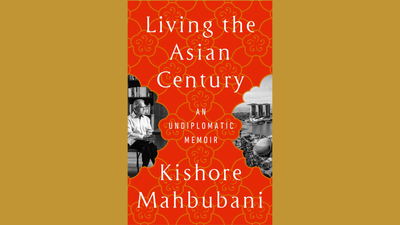“The Euphoria is Real”, a 17-min documentary we released last week, follows the lifelong journey of self-discovery for Julianna Maria Hedger, a 34-year-old Singaporean trans woman—from the uncertainty she had about clothing when she was a kid to her recent gender reassignment procedure. In one touching scene, Hedger described her father’s post-op visit to her hospital room. “So it was just my father and I. And he started crying, you know. And he never, ever does that…Then he was like, ‘Very proud of you, and you’re very brave to want to be who you are.’”
To see Hedger’s entire extended family in moments of shared liberation and euphoria is rejuvenating for the soul. It’s a story that deserves to be cherished, even as we’re aware that it’s hers, it’s unique, it’s just one of many in the compendium of trans lived experiences in our little red dot.
For all of us seeking greater understanding of and empathy with this vulnerable community, we should recognise that transgender people experience a very different Singapore than do cisgender people. Consider public safety, something that even Singapore’s harshest critics might admit is a crowning accomplishment. It’s sadly not enjoyed by us all. One out of five transgender Singaporeans said that they have been threatened or physically attacked, according to a recent survey by Milieu, commissioned by Pink Dot. This is merely the most extreme, shocking aspect of the everyday violence that they face. Eight in 10 have had a direct experience of discrimination in the last five years, with half having been rejected by family or friends, and close to half having been subject to slurs or jokes.
Their realities sit in sharp contrast to the notion that Singapore is an inclusive, global society. Surely transgender Singaporeans, and others in the broader queer community, deserve the same protections and opportunities that we seek to provide other minority groups, ones that will allow each individual to live their best lives.
That we are so far from realising this is due to a farrago of antiquated prejudices against transgender people and contemporary myths about gender dysphoria. Gender discourse, sometimes pejoratively termed “gender ideology”, has emerged in the past decade as a key site of contestation in the so-called “culture wars of the West”. Celebrities as varied as JK Rowling and Jordan Peterson have stoked fear on a range of alarmist topics, from the use of public bathrooms by transgender people to alleged linguistic intolerance over pronouns. Societal discourse can often seem clouded by paranoias over exceptional social situations rather than the larger, salient matter at hand: crafting an enlightened, empathetic approach towards gender dysphoria.
A non-binary view of gender has a deep, rich tradition across Asia. In South Asia, hijras are generally recognised as a third gender and can trace spiritual roots to Hinduism’s concept of tritiya prakriti, literally “third gender”. The Bugis people of South Sulawesi, meanwhile, whose presence Singapore feels in our blood, maritime history and place names, have long recognised five separate gender identities. Many South-east Asian languages, including Malay/Indonesian, Burmese and Tagalog, have inherently gender-neutral pronouns, such as dia, Malay for he/she.
Any efforts to stigmatise hijras and other transgender people are rooted more in colonial puritanism and its lingering effects on social mores. Modern Western Christian evangelical movements have also clearly influenced society’s conservative views on gender and sexuality. We see no need here to entertain any doubts about gender dysphoria, non-binary identities, or the broader distinctions between biological sex and our socially constructed gender identities, for which we owe a debt to thinkers such as Margaret Mead, Simone de Beauvoir and Judith Butler. Those concepts have long been credibly established, from the medical to social sciences, even if their expression in policies remains up for debate.
The main point of contention today is, or at least should be, about what sorts of personal freedoms and state-supported care societies should afford individuals experiencing gender dysphoria. “Let anyone change their sex. Let anyone change their gender. Let anyone change their sex again,” was Andrea Long Chu’s libertarian clarion call in “Freedom of Sex: The moral case for letting trans kids change their bodies”. Rousing as it is, we believe that it’s important to outline the areas where the state may have an interest in establishing safeguards, particularly for minors, in order to protect them.
A starting point for any discussion on gender dysphoria is the emphasis on creating an environment in which any person can love themselves. The capacity to cherish one’s own body and self is important. But we must also recognise that for some people, self-love is realised through the act of bodily change. We all want an outer form that corresponds with our inner truth. Individuals should thus also have the agency to change it however they wish. An appropriate way to conceptualise gender-affirming care, which includes psychotherapy, puberty-blocking drugs, hormones and surgeries, is as a modern extension of the bodily autonomy democracies already grant their citizens.
For transgender adults, this should be uncontroversial. They should simply have the right to transition when and how they want, as did Gina Chua, the executive editor of Semafor (and perhaps the most senior Singaporean journalist in the world), and Hedger, the protagonist of “The Euphoria is Real”. Adults like Chua and Hedger, in keeping with Chu’s call, must have the ability, in an enabling, supportive environment, to make up their own minds about their own bodies—and later change their minds, if they so wish.
For transgender youth, there is the obvious difficulty of obtaining informed consent for treatments with long-term implications. Some people who experience gender dysphoria as adolescents may not necessarily need early medical intervention, and may later regret it if they get it. And there are others for whom early medical intervention may be transformative and life-changing, even life-saving. The onset of puberty, a seismically important turning point in the life of a transgender youth, means that it’s not a decision that can be easily delayed till adulthood. All would benefit from more experienced, trained doctors working in consultation with the trans community—to better identify who is likely to benefit from transition, and who is perhaps unconsciously mistaken, in seeking transition as a means to an end, such as escaping trauma, and is instead likely to benefit from other kinds of support.
Medical practitioners in the West generally agree on the need for more research into gender-affirming care for transgender youth, partly to allow for more accurate diagnosis of kids who experience gender dysphoria. They disagree, however, about what to do in the meantime. One school of thought, buttressed by the UK’s recent Cass Review, urges caution. An opposing one, whose champions include the American Academy of Pediatrics and the Endocrine Society, regularly stresses the urgency of gender-affirming care for transgender youth, who suffer higher than average rates of anxiety, depression and attempted suicide. Adherents to the latter have since made numerous criticisms of the Cass Review.
In democracies, transgender people are some of the most vulnerable in this current moment. They’ve become embroiled in larger “culture wars”. Detransitioners, in particular, have become poster childs for cultural conservatives. To encourage a more enlightened, empowering approach to gender dysphoria, part of our work must involve liberating people from any form of cultural tyranny.
The internationalisation of “culture wars”, including through social media, can become problematic for a society like Singapore. Conservatives here have been energising their base by exaggerating the threat from some imagined intolerant left. The paranoia about supposed cancel culture—fuelled by, without a hint of irony, a government that has long censored and (effectively) exiled others—is just one manifestation.
Consider what Singapore’s mainstream media deems fit for publication. In early 2021, in an op-ed in TODAY, “This is why I don’t want to be woke. Don’t cancel me for it”, then-undergraduate Dana Teoh said: “But as a young person who lives on the internet, I would never ever admit that I think being transgender is a little out there for me…I still get weirded out by photos of post-op bodies, and still struggle with the argument that trans children should be given hormone blockers.” That a government-funded and -controlled paper could approve a statement objectifying and expressing contempt for the bodies of a vulnerable minority group is proof of, at the very least, implicit biases and prejudices against transgender people. Following a backlash, that line was removed.
And yet the broader rejection of liberal and progressive ideas continues, often under the guise of anti-wokeism, most recently in the exit interview by Lee Hsien Loong, former prime minister (and now senior minister). Genuine social justice movements in Singapore, then, whether on race, gender or criminal justice, risk being impeded by conservatives who pretend that San Francisco’s demons are already here, to scupper honest dialogue. Quite the contrary, what Singaporeans should actually fear is the infiltration of American right-wing talking points into our establishment’s propaganda. (Many Republican states in the US have banned treatments for transgender youth.) In our assessment, then, the people most at risk here are young Singaporeans who experience gender dysphoria and who need early medical intervention. Given our current biases, they may not get it. While we understandably seek to protect one group, we jeopardise the other.
According to Ellis Ng of TransgenderSG, a research and support group, there are many reasons people might stop gender-affirming care or revert to their birth-assigned gender, including family pressure, religion and difficulty finding work. They cited a 2021 review of 27 studies involving nearly 8,000 trans teens and adults who had surgery, mostly in Canada, Europe, and the US, which found that transition regret was only at 1 percent. “This small group is tiny compared to the far higher numbers of trans people who experience great relief from transitioning, with significant benefits to their health and well-being,” Ng told Jom. “And while the experiences and voices of people who regret transition deserve to be heard, to focus on them and ignore the rest means that we overweight the experience of a handful against the needs of the many more.”
Each individual has unique needs. Instead of succumbing to the hysteria of the “culture wars”, then, Singapore must prioritise the creation of clear, transparent medical pathways that enable transgender youth to access the appropriate care that they need under the supervision of doctors and parents.
But there’s more. They face challenges not only in terms of accessing gender-affirming medical care, but in the lack of a broader, nourishing, supportive environment, from family and schools to society. The shameful othering of transgender people continues every day. Consider that last month the Infocomm Media Development Authority slapped “The Euphoria is Real” with a R21 rating for public screenings (in keeping with its stated guidelines). What we consider a wholesome film celebrating self-discovery and family bonds is perceived by the state as unsuitable for young Singaporeans. Contrast this with two films currently showing with an M18 rating: “Kill”, a Bollywood flick about killing knife-wielding terrorists; and “Boy Kills World”, a Hollywood flick about, well, killing everybody. Edifying stuff.
One of the most corrosive aspects of almost all discussions around transgender issues, globally, is this othering, this divisiveness. We need to emphasise collective interest and responsibility. After all, the transgender experience is more than just a medical or sociological issue—it is also an existential, spiritual one. The universe decides which souls get deposited in which containers. Any of us may have been plonked into a body that causes us gender dysphoria. We are all just connected in a continuum. Masha Gessen, a Russian-American journalist who transitioned at 50, told The New Yorker: “I think probably the biggest mistake is not recognising that there are different ideas about transness within the trans community. Probably different trans communities. Certainly different experiences of transness. That, for some people, it’s an essential part of themselves.”
Another way to contemplate the issue is through privilege. Singaporeans have in recent years become more aware of how different forms of privilege—ethnic, financial, able-bodiedness—can affect an individual’s life opportunities and outcomes. Yet if one listens to the feelings and sentiments of those with gender dysphoria, perhaps the greatest form of privilege from the birth lottery is to be happy and comfortable with the gender you were assigned at birth. Put another way, the vast majority of humans who will never experience gender dysphoria—cisgender people—are immensely privileged, and thus have a moral responsibility to create a shared, harmonious space for those who will. “Everyone should be given the chance to live their fairytale life as soon and as early as possible so that they can feel the love and courage they have in living their true authentic lives,” June Chua, the founder of T Project, Singapore’s first and only social service for the transgender community, told Jom.
Our conservative government probably realises that it has to play catchup since society has already shifted. In a recent Ipsos survey, two-thirds of Singaporean respondents agreed that trans teens should be allowed to receive gender-affirming care with parental consent in Singapore. Over half believe that health insurance should cover gender transition no differently than other medical procedures; and that trans people should be allowed to use single-sex facilities that correspond to the gender they identify with.
In all this we are simply continuing the work of those who came before. In 1971, SS Ratnam, a pioneering Singaporean surgeon, performed Asia’s first sex change operation, after he felt compelled to help a transgender Singaporean who was on the verge of suicide. He did so through a mix of guile, intensive research, and experimentation, which included first practising on cadavers in a mortuary. Those are qualities that can inspire us all. His medical breakthrough was only the first step. Five decades on, the work of socialising and normalising the rights of this persecuted minority group is ours to do.
This commentary is from Jom’s team. If you enjoy Jom’s work, do get a paid subscription today to support independent journalism in Singapore.
Letters in response to this piece can be sent to sudhir@jom.media. All will be considered for publication on our “Letters to the editor” page.






